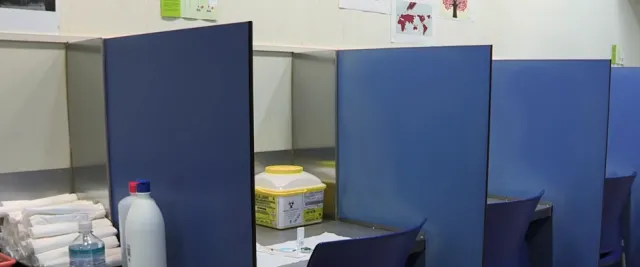The EMCDDA and Serbia signed a new Working Arrangement this month, which will pave the way for greater cooperation on monitoring the drug phenomenon in Europe and beyond its borders. Due to COVID-19 restrictions, the agreement was formalised through an exchange of letters between: Milan Pekić, Acting Director of the Office for Combating Drugs of the Government of Serbia; Prof. Dr Berislav Vekić, Secretary of State, Ministry of Health; Vladimir Rebić, General Police Director, Ministry of the Interior and Alexis Goosdeel, EMCDDA Director.
The Working Arrangement originates in a request, in April 2019, from the Serbian Office for Combating Drugs (OCD), the body in charge of coordinating drug policy in the Republic of Serbia. After receiving the favourable opinion of the European Commission on the draft text in December 2019, the EMCDDA Management Board mandated the Director to sign the agreement.
This Working Arrangement is the third to be signed between the EMCDDA and a partner from South-eastern Europe (the first being Albania in 2019 and the second being Kosovo* in September 2020). The new agreement provides for the exchange of expertise between the entities concerned, thus contributing to developing drug data-collection and reporting capacity in the region.
The EMCDDA began its cooperation with Serbia in 2007 in the framework of EU-funded technical assistance projects designed to prepare Western Balkan partners for accession to the EU (and for participation in the work of the EMCDDA and its Reitox network). Serbia is one of the six partners currently receiving assistance under the EMCDDA IPA7 project, running from July 2019 to June 2022.
Serbia's cooperation with the EMCDDA operates through its National Drug Observatory (NDO), the National Monitoring Centre for Drugs, located within the Ministry of Health. Following an assessment by EMCDDA experts in June 2018, it was revealed that, in the past few years, progress has been made on the three core functions carried out by an NDO: data collection; monitoring, analysis and interpretation of the data collected; and reporting and dissemination.
The EMCDDA and Serbia are currently working together to consolidate Serbia’s capacity to monitor the drug phenomenon through the use of evidence-based tools and knowledge built and promoted within the EU. This cooperation led to the production of a national drug report published in July 2017 on the EMCDDA website.
This new Working Arrangement, as well as the current EMCDDA–IPA 7 project, will also allow for the exchange of expertise and data on new psychoactive substances between the EMCDDA and Serbia, thanks to the Serbian national early-warning system.
* This designation is without prejudice to positions on status, and is in line with UNSCR 1244/1999 and the ICJ Opinion on the Kosovo declaration of independence.


















